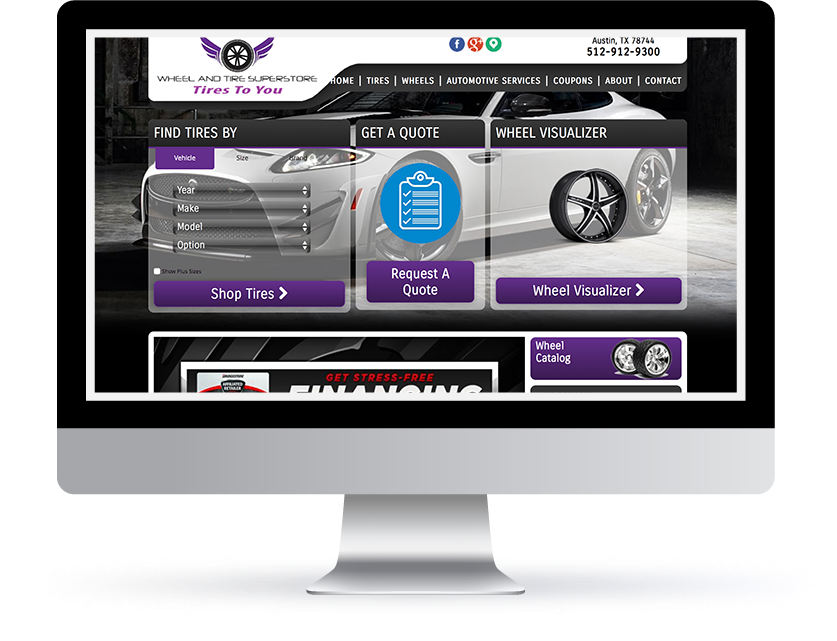 The goal of any content is to deliver a message.
The goal of any content is to deliver a message.
But when it comes to your business, your content has to accomplish much more than that.
Today, we’ll identify the differences between two types of content marketing and how to take action to ensure you’re using the most effective type for your business.
1. What Is Product Marketing Content?
Product marketing content is that which is used to market tangible consumer goods. These kinds of products can be measured, stored, seen, and touched.
The goal of this content is to increase sales volume, and so the language is typically focused on the value it brings to a customer.
Product value can be expressed in a number of ways. Resale value, comparison with another product, the knowledge used to develop a product, and the testing done to ensure the product’s quality or processes employed to make continual improvements are all ways to communicate value when developing product marketing content.
2. What Is Service Marketing Content?
Service marketing content is used to promote consumer services such as car detailing, dog walking, massage therapy, and vehicle repair.
Services are generally intangible and so are not able to be measured, stored, or touched. The goal of this type of marketing content, therefore, is to sell the intangible value and characteristics of the service.
Service value can be expressed by referring to its benefits, such as those expressed in customer testimonials.
It can also focus on the intangible value to customers, such as time savings and efficient delivery, as well as timeframe, expiry, and customization.
How Are They Similar?
Product and service marketing content are similar in that they both:
– Solve customer problems in some way
– Share the goal of increasing adoption, sales, and customer satisfaction
– Must be able to make a promise and deliver on that promise
How Are They Different?
Content used to market a product differs in a number of ways from that used to market services. These “nuts and bolts” should be considered as you are outlining and executing the content you are planning to put to work for your business.
People
 The job of selling a product typically falls to product marketers, where it’s typically a salesperson who is in charge of selling a service.
The job of selling a product typically falls to product marketers, where it’s typically a salesperson who is in charge of selling a service.
How can your product content cause the least amount of friction and streamline the customer journey from awareness to conversion and beyond?
Those of us seeking out specific products likely know the problems that need to be solved already, so your content should address these pain points directly.
Service content may have more steps and touchpoints so this content needs to finesse the intrinsic needs of the customer to encourage them to take the next steps necessary.
Personalization
 Products are delivered in the same form to all customers. Certain aspects, such as color and accessories, may be able to be customized, depending on the product.
Products are delivered in the same form to all customers. Certain aspects, such as color and accessories, may be able to be customized, depending on the product.
Services, on the other hand, can be modified according to the needs of a customer.
For example, a customer may be able to choose a bundle of services that meets their individual needs, or access a service at their choice of time and interval.
Value Focus
 The focus of marketing a product vs. marketing a service is also different.
The focus of marketing a product vs. marketing a service is also different.
While a marketer’s focus will be on the physical aspects of a product, such as its design and reliability, a person selling services will typically focus on and build the relationship between the service provider and the customer.
Delivery, Availability, and Access
When purchasing a product, a customer visits an online store to order, or travels to a physical location to pick it up, and then begins to use that product.
In order to successfully provide a service, it must be as easy and efficient as possible for the customer to obtain access—often resulting in on-sight services being provided by the business.
3. Creating Better Content for Your Product
Selling your product means being able to communicate its features and benefits to your customers clearly. In order to accomplish this, your product content strategy should include, but not be limited to, the following:
Thinking Long Term
 Selling your current product is definitely a goal, but what about the future?
Selling your current product is definitely a goal, but what about the future?
Think about how your product may change or expand to other products, and create a template that leaves room for future potential.
The first purchase is just the customer putting a foot in your door—are you able to convert this one-time buyer into a long-term advocate?
Identification and Persuasion
Whatever you may be selling, it will be vital to identify the problem it solves for your customer.
Part of accomplishing this includes persuading your reader—show how your product solves their problem by going into detail about the many ways it simplifies their life, saves them time, saves them cash, or even how good it will feel to use your product.
Facts and Figures
Now that you’ve made claims about how your product can make customers’ lives better, back them up with facts and statistics about cost savings, long-term value, and similar.
Don’t be afraid to tell them why they can’t live without your product! If you can back up your claim with some solid numbers—do it!
4. Creating Better Content for Your Service
Selling a service is about communicating its intangible benefits, and accomplishing this successfully is possible using more than one strategy. Remember, you may absolutely know the effects and long-term impact of your services, but what is going to resonate with customers is the intrinsic impact they will experience once your services are complete.
Educating Your Customers
 Because a service’s features and benefits may not be apparent to customers at the outset, education is a necessity. This involves explaining your service, its benefits, and why it’s important for the customer to purchase it. This might even (and often does) include showing them the problem you are solving—a problem that they may have been unaware of. If your service makes them safer, saves them energy costs, saves them time, etc. – make sure these value points are expressed in your content.
Because a service’s features and benefits may not be apparent to customers at the outset, education is a necessity. This involves explaining your service, its benefits, and why it’s important for the customer to purchase it. This might even (and often does) include showing them the problem you are solving—a problem that they may have been unaware of. If your service makes them safer, saves them energy costs, saves them time, etc. – make sure these value points are expressed in your content.
Telling a Great Story
 Storytelling is a vital part of service content marketing.
Storytelling is a vital part of service content marketing.
It could be a story about how your company came to be, or it could be about how your service has benefited a certain group of people. An even more powerful strategy is telling your customers’ stories—this lets potential customers connect with your solutions and business even faster.
Go Beyond the Service
Your service is probably incredibly beneficial to your customers, but this fact may not be enough to make the sale.
Consider presenting your service as part of a lifestyle (like Uber or Lyft) or as something only a select few can get their hands on. If your service is niche or applies to a particular customer “type,” make sure you are representing this demographic in your brand imagery, messaging, and video content.
Attention, Exposure, and Getting Noticed
Whether you’re selling a product or service, killer SEO should always be part of your content marketing strategy.
Why?
Search engine optimization not only tells your customers where you are and increases your website traffic, but it also builds your credibility, which is the foundation of any trusting customer relationship. You may have the greatest service in the world (and we assume you do), but if customers can’t find you, all your efforts will be lost.
Reach Your Customer With the Perfect Content
Selling any product or service means being able to focus on the strategy that will bring you the most sales. This will be easier said than done if content creation isn’t (currently) in your skillset.
But the expert content creators and SEO specialists at National Positions can help you tell the story about your product or service in a way that clarifies customer benefits, builds trust and connection, and creates loyalty.
Learn more by getting in touch with us today at 1-877-866-6699. You can also visit our contact us page and tell us a bit about your business goals so we can help you even faster!

